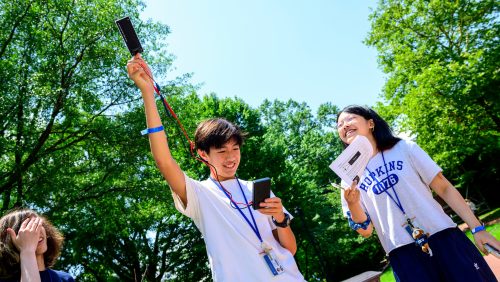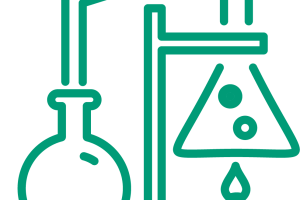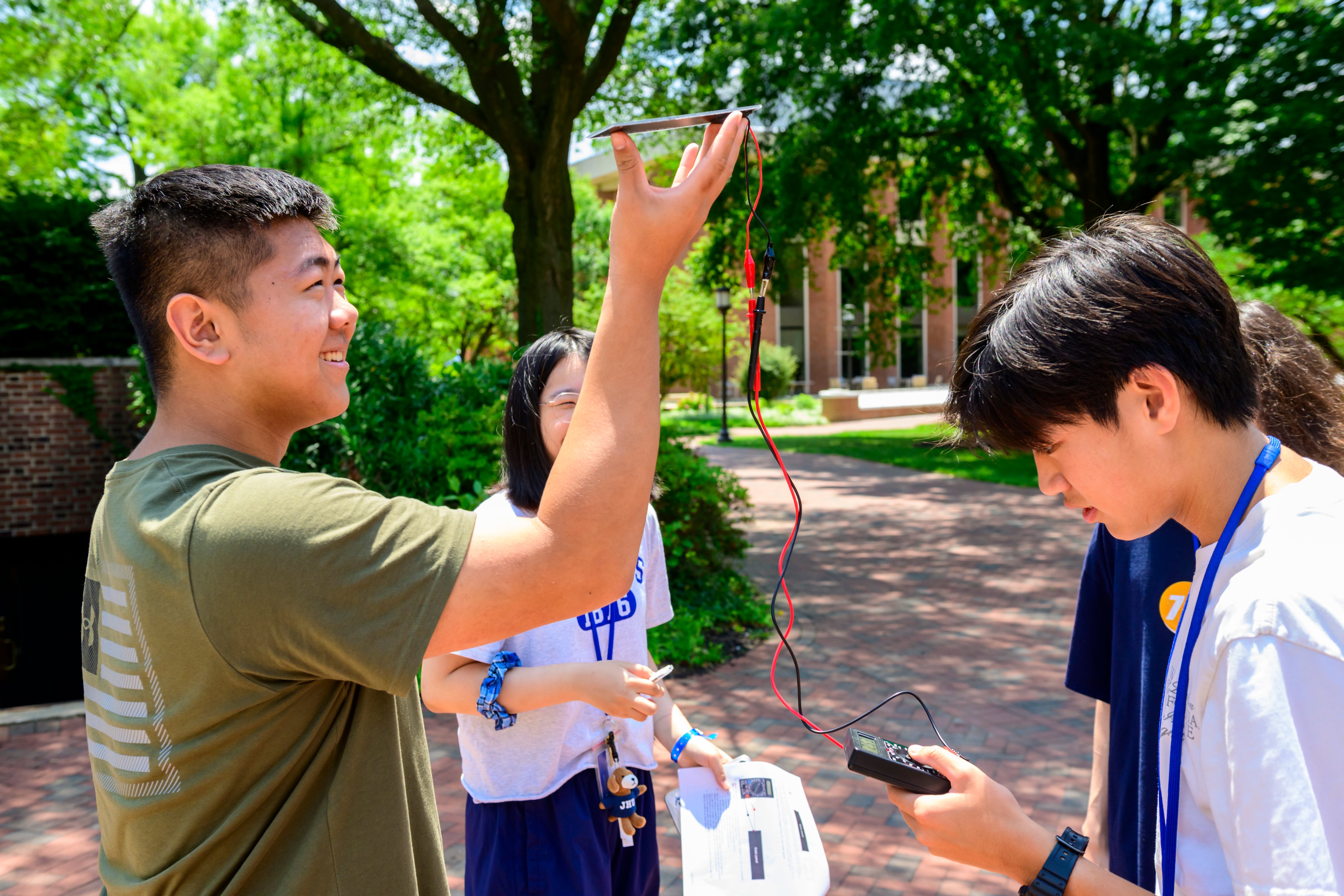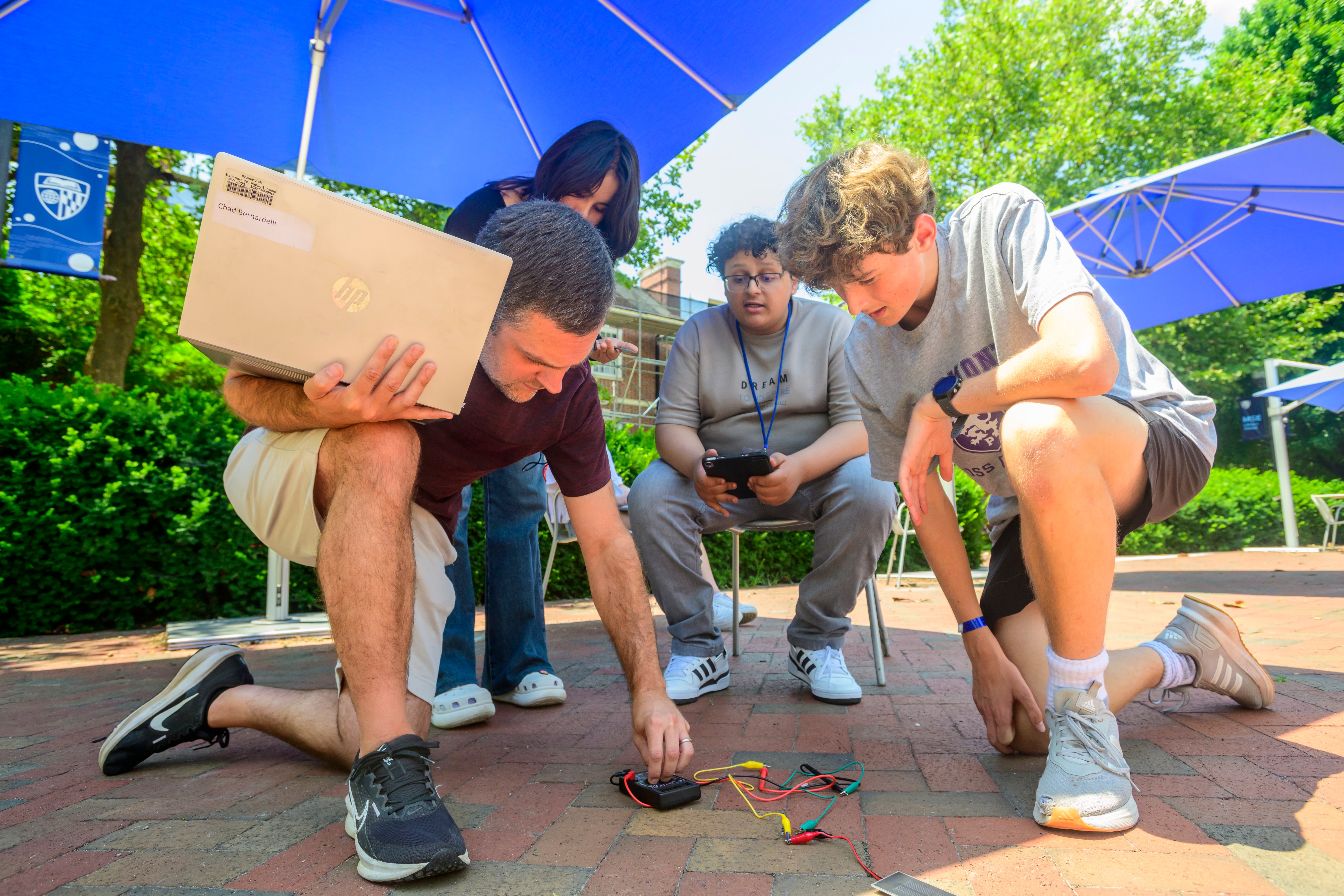SEE is a college-level summer program where your ingenuity can thrive, and you can earn three credits from Johns Hopkins University.
Created by environmental engineering experts at Johns Hopkins University, SEE is an interactive, multi-week course offered in-person at residential and commuter sites nationwide or online with live instruction.
SEE gives you the chance to explore the science, technology, and policy shaping tomorrow’s energy future while building the skills to think and problem-solve like an engineer.
You’ll collaborate with students from around the world who share your passion for creating a sustainable society and experience what it’s like to learn in a college environment.
Course Content and Projects
SEE is more than a summer program. It’s your chance to dive into the challenges of building a sustainable energy future. Together with your peers, you’ll examine how energy is currently produced and distributed, investigate the science behind energy systems, and explore the social and political factors that shape energy use and innovation.
As you collect data, experiment, and present your ideas, you’ll begin to develop the confidence and mindset of an engineer. Here are a few of the hands-on projects you’ll take on.
Hydropower Case Study
Investigate the Conowingo Dam using real data from one of the nation’s largest hydroelectric plants. You’ll calculate how much power it can produce, explore how it keeps the grid stable, and weigh the environmental and community impacts that make hydropower both promising and complex.
Wind Turbine Lab
Capture energy in the wind using a laboratory-scale wind turbine model as you explore the effect of wind speed and blade angle on power generation. How does the wind turbine model stack up against the real deal? Measure its efficiency to find out.
Design Sustainable Living
Work with your team to design a space powered by clean energy. You’ll calculate power needs, compare renewable options, and create a plan that balances comfort, efficiency, and environmental impact.
Want a closer look at everything you’ll experience?
You can review past syllabi for detailed information about what is covered in the course, objectives, schedule, labs, grading deliverables, and more.
Compare Program Formats
Whether you study on campus, residential or commuter sites nationwide, or learn from home, SEE empowers you to start making your own way in the world.
Find the Program That Fits You
Both formats deliver the same rigorous, hands-on curriculum taught by Johns Hopkins Engineering instructors and faculty, but the experience you have outside the classroom sets each option apart.
 In-Person: Residential or Commuter
In-Person: Residential or Commuter
Life on campus starts here. Spend four weeks immersed in sustainable energy topics while experiencing an exciting college environment. Live in the residence halls and explore college life before you graduate high school, or commute daily to enjoy the same classroom and lab experience while staying at home.
 Online: Learn from Anywhere
Online: Learn from Anywhere
Your summer, your schedule. From the comfort of your home, you’ll connect with passionate students from across the globe while tackling a college-level sustainable energy course. With daily live sessions, collaborative projects, and a flexible format, you’ll strike the right balance between family, friends, and your future in engineering.
Note: Costs vary by program format and location. Please visit our Cost & Aid page for full details and information about financial aid.
| Program Type | dates | location | class times |
|---|---|---|---|
| In-Person Commuter | June 29 – July 24, 2026 (4 weeks) |
Offered in multiple U.S. cities (locations vary by year) | 9:00 a.m. – 3:00 p.m., in the time zone of the program location, M–F |
| In-Person Residential | June 29 – July 24, 2026 Move-in: June 28 (4 weeks) |
Two residential campuses | 9:00 a.m. – 3:00 p.m. ET, M–F |
| Online Only | June TBD (5 weeks with 3 synchronous hours each day) |
Online only | Choose one schedule: • 9:00 a.m. – 12:00 p.m. ET, M-F • 2:00 p.m. – 5:00 p.m. ET, M-F • 7:00 p.m. – 10:00 p.m. ET, M-F |
Eligibility
SEE mirrors a real college course, so you’ll need to meet a few requirements before applying.
Academic Prerequisites
- As and Bs in your high school math and science classes
- Completed Algebra II
- Completed a high school science course with a lab
Grade Level Eligibility
You must be a current high school student or recent high school graduate.
Our typical student is a rising junior (~35%) or senior (~65%) in high school. Talented ninth-graders (rising sophomores) may be considered; however, when space is limited, priority will be given to older students. Graduated seniors are also eligible to participate during the summer before they begin their college career.
Residential Program Age Requirements
For 2026, students participating in a residential program must have been born between July 25, 2008, and June 28, 2011; they must be at least 15 years of age on move-in day and no older than 17 years of age on the last day of the program. We cannot accept students who turn 18 before the final day of the course to a residential program. You must be under 18 years of age to live in the residence hall.
Explore Your Format
Let’s break it down to see what each option looks like up close.
In-Person Commuter
Commuter Opportunities
Live at home and spend your days learning new skills alongside peers at one of our commuter locations.
Cost & Aid
Find full tuition details and information about financial aid on our Cost & Aid page.
Course Content
Curious about what’s covered? Explore past syllabi for detailed information on course objectives, schedule, labs, grading, and more.
Time Commitment
SEE is a college-level course requiring you to commit approximately 38 hours per week. Therefore, we strongly discourage you from taking online courses while enrolled in SEE. If you choose the commuter version of the course, you will have more flexibility with your time, but you should still consider any other commitments you have (such as jobs, internships, other courses, sports, etc.) when deciding whether to enroll.
Homework
Expect up to two hours of homework each evening after class.
Health Requirements
All in-person students, residential and commuter, must have health insurance. For more details, see our Policies & Services page.
In-Person Residential
Residential Opportunities
Experience campus life for four weeks at one of our residential locations.
Cost & Aid
Find full tuition details and information about financial aid on our Cost & Aid page.
Course Content
Curious about what’s covered? Explore past syllabi for detailed information on course objectives, schedule, labs, grading, and more.
Time Commitment
SEE is a college-level course requiring you to commit approximately 38 hours per week. Therefore, we strongly discourage you from taking online courses while enrolled in SEE. If you choose the commuter version of the course, you will have more flexibility with your time, but you should still consider any other commitments you have (such as jobs, internships, other courses, sports, etc.) when deciding whether to enroll.
Homework
Expect up to two hours of homework each evening after class.
Health Requirements
All in-person students, residential and commuter, must have health insurance. For more details, see our Policies & Services page.
Online
Synchronous Class Options
SEE Online is a live (synchronous) course. Students must attend a three-hour virtual class every weekday (Monday to Friday). When you enroll, you’ll choose one of these time slots (Eastern Time):
-
9:00 a.m. – 12:00 p.m. ET
-
2:00 p.m. – 5:00 p.m. ET
-
7:00 p.m. – 10:00 p.m. ET
Cost & Aid
Visit our Cost & Aid page for complete tuition details and information about financial aid.
Course Content
Curious about what’s covered? Explore past syllabi for detailed information on course objectives, schedule, labs, grading, and more.
Time Commitment
SEE is a college-level course requiring you to commit approximately 28 hours per week in the online format. We strongly discourage students from taking other courses while enrolled in SEE. While commuter and online formats offer more flexibility than residential, you should still carefully consider other commitments—such as jobs, internships, other courses, or sports—before enrolling.
Weekly Breakdown
-
1 hour – Independent Study: Watch pre-recorded lectures or review brief reading assignments introducing new content.
-
15 hours – Virtual Class Meetings: Participate in a three-hour live video class each weekday (Monday through Friday).
-
7.5 hours – Homework: Complete individual assignments to demonstrate your understanding of the material.
Computer Requirements
As a SEE Online student, you will need a computer to access course materials in MS Teams and on the Canvas learning management system. Canvas works best with Firefox or Chrome, and enabling third-party cookies may improve your experience. MS Teams is a cloud-based application accessed with JHU login credentials you will receive after accepting admission.
Your computer should also have:
-
The ability to record video of course projects and upload footage to Canvas or MS Teams
-
Reliable internet access
Required Lab Supplies
Information on ordering the required lab supplies from our official vendor will be provided when you receive your offer of admission. Please see the Cost & Aid page for lab kit fees. Shipping fees and U.S. sales tax will be added at checkout.
International Students
Students outside the United States are responsible for any taxes, tariffs, or duties charged by customs, in addition to international shipping fees. Expect international shipping to take two weeks, though it may be longer if delayed in customs. Use the tracking information provided by the vendor to determine if you need to pick up your package from customs or the shipping company.
“SEE inspired me to learn more and search for more information. Before the program, if you were talking about energy with me, I’d probably just think of chemistry or industries related to it. But now, I’m also looking at the biologists’ perspective, economic policies, and physics—so many things that I find interesting. Everything interacts with each other instead of being independently separate. ”
 Sophie
A Sustainable Energy Engineering alum
Sophie
A Sustainable Energy Engineering alum
JOIN US!
Learn about each program or start your application today.





